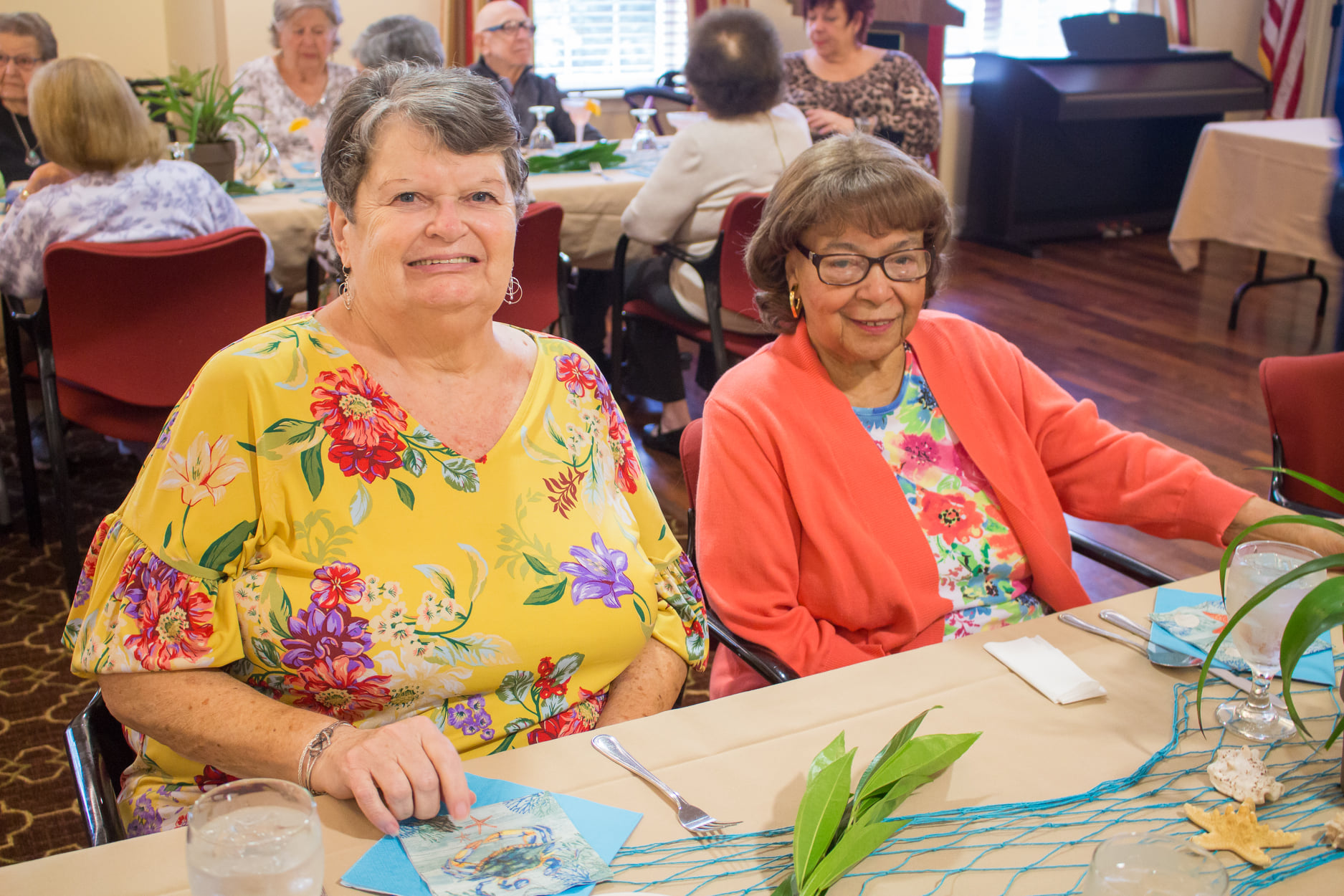It's no secret that as our bodies age, our brains age, too. While there is no known cure for age-related dementia, more and more studies show a promising link between intellectual stimulation, social interaction and improved cognitive health.
Our Bright Minds program is a collection of Brightview community offerings designed to improve our residents' overall brain health and cognitive function. With Bright Minds, we focus on creating and maintaining healthy lifestyle habits, from increased exercise, social interaction, and healthy eating to managing chronic health conditions to keep you active and your brain healthy.
The Looming Dangers of Solitude
It turns out there is such a thing as too much alone time. Researchers say that social isolation and loneliness can lead to a number of physical and mental issues including:
- Heart disease
- High blood pressure
- Anxiety
- Depression
- Weakened immune system
- Obesity
- Cognitive decline
Being Alone vs. Being Lonely
It's important to note that isolation can occur even when people are surrounded by their peers. That sensation of feeling alone in a crowded room happens when someone feels disconnected or unseen. Dr. John T. Cacioppo, former director for the University of Chicago's Center for Cognitive and Social Neuroscience, was one of the first experts to expose the fact that being alone and feeling lonely may coexist, but they're not actually the same thing.
- Social isolation is physical separation that occurs when someone is not in the presence of other people, likely because they're living alone and lack the resources or desire to venture out
- Loneliness is the subjective feeling of sadness or distress because someone is feeling alone, whether or not they are physically on their own
The main takeaway is this: Plopping a resident or loved one in a group setting and assuming all is well simply isn't enough. Instead, find ways to prevent social isolation while also introducing them to activities that encourage participation.
The Importance of Interactive and Intellectual Pursuits
Transitioning aging loved ones to a senior living community is a powerful first step towards limiting isolation, but once those seniors are comfortable ensconced in their new home, they need to have a reason to go out and about. Ideally, the community will have a bustling social calendar packed with a variety of offerings. That may include in-house activities such as movies and game night as well as workshops taught by volunteers and off-site field trips to see a play, go bowling, shop at a farmers market, check out a local festival or visit the zoo.
Intellectual engagement is a bit trickier. There is evidence that intellectual engagement can help build up a cognitive reserve, but participation was most effective earlier in life and didn't seem to affect the trajectory of any eventual decline. In other words, doing crosswords puzzles and practicing other forms of problem solving in early adulthood can give you a higher cognitive starting point, but in some cases decline may still be inevitable, if delayed.
Incorporating Physical Activity
Turning some of those interactive hobbies into physical ones could exponentially increase the benefits. Multiple studies report a positive correlation between exercise and brain health, including cognition. As physical activity stimulates hormones, those hormones appear to help improve memory function and may even protect the brain from further degeneration. The World Health Organization recommends adults 65 years of age and older schedule a minimum of 150 minutes of moderate-intensity aerobic activity each week; those who are able to boost their activity to 300 minutes weekly will reap even more benefits. That time can be broken down into 10-minute segments, and adults with poor mobility should incorporate balance-building and muscle-strengthening activities at least two days per week.
Some aerobic pursuits simultaneously satisfy the need for social interaction:
- Hiking
- Swimming
- Water aerobics
- Dancing
- Gardening, especially raking or other more taxing tasks
- Walking or jogging
Special Steps for Those Already Cognitively Challenged
For seniors who are already struggling with cognitive decline, you may have to take extra steps to prevent agitation and allow for a smooth, low-stress visit for all involved.
- Plan activities for earlier in the day to avoid sun-downing, otherwise known as late-day confusion
- Choose activities that echo participants' interests rather than trying something new
- Avoid loud environments that could make it difficult to talk or listen
- Maintain eye contact and stay engaged
- React to emotional outbursts with calm, measured tones
- Understand that while loved ones or residents with dementia may have trouble remembering your name or recalling recent events, they can still register your feelings and mood, so act accordingly
At Brightview Senior Living, our residents have the opportunity to participate in everything from oil painting classes to concert trips as part of our innovative SPICE initiative and Bright Minds program. To learn more or inquire about vacancies, contact your local Brightview community directly.

